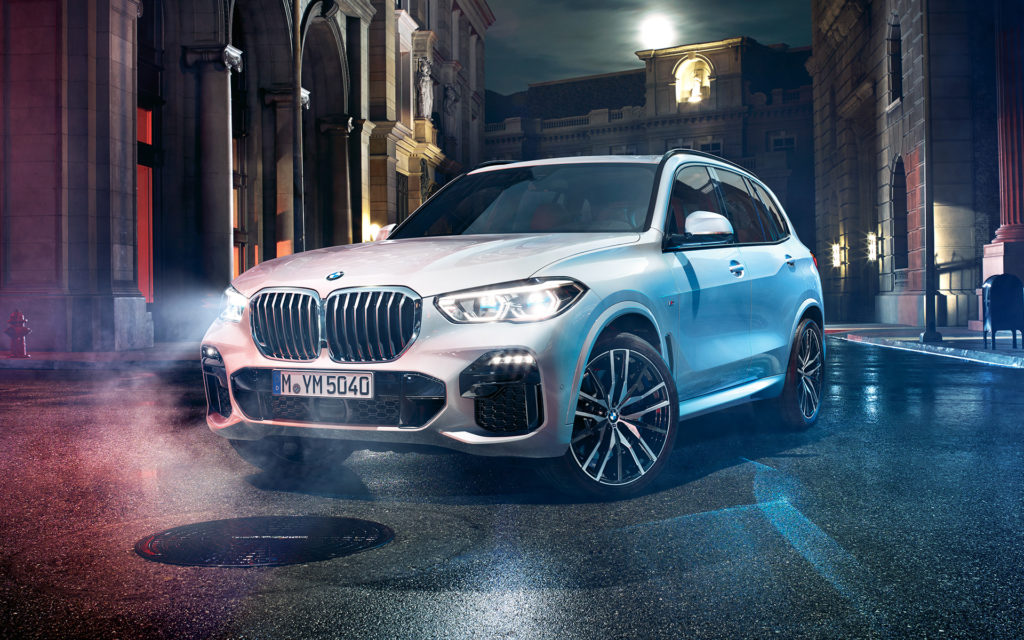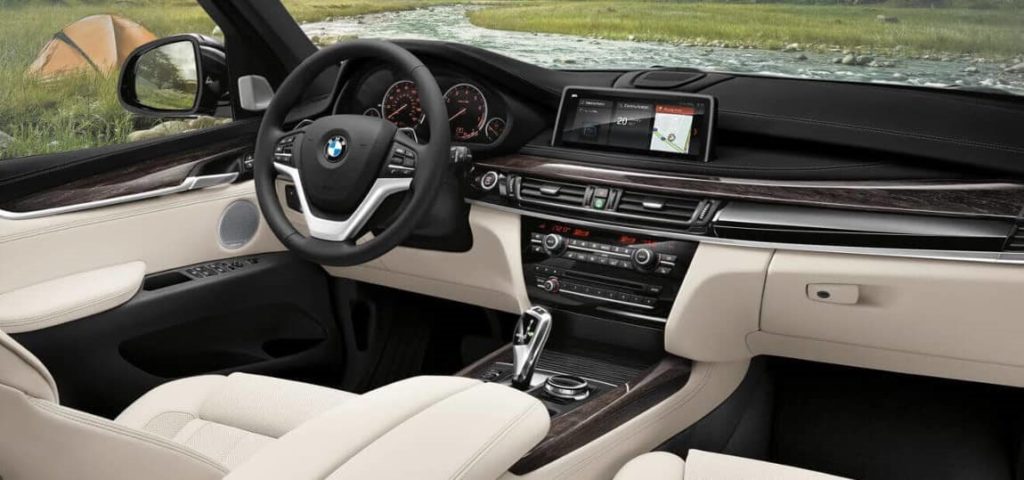BMW X5 Review
The first generation of BMW X5(E53) was introduced in the year 1999. Right from the beginning, it was clearly evident that BMW had sharply injected the sporty DNA into an unconventional SUV body style (sedan-like). It had a chassis that was integral with the body, a first among its contemporaries. The X5 was constructed to be the jauntiest SUV around ground-up. The first-gen X5 was fairly well received by the Indian car connoisseurs and it gradually climbed the steps to be the best-selling SUV for a brief amount of time. With the arrival of the third-gen X5(F15), BMW pledges to deliver the same exuberance in a suave, o
ate and well-refined manner. The oath is to up the panache associated with the brand.
Design

The looks of the new X5 doesn’t change drastically from its predecessors. It shares certain features with the earlier versions. Looking at it, it clearly feels that it is an up gradation of an older version than an all-new one. The nose has gained a new prominence with the headlights heading till the grille. The signature grille is bestowed with a bolder look, supplemented with a tougher bumper and a clear shoulder line. The design of the new X5 looks expensive. The tail-lamps have been upgraded. However, apart from the changed tail-lamps, the car doesn’t look much different at the rear
This time, BMW has paid more attention to the up gradation of the car’s interior components rather the exterior ones. Hence, the new X5 looks similar to its predecessors from the exterior but feels differently from the interior. One can observe a shift to an electric steering from a hydraulic one. To increase the performance, efficiency and economic aspects, the body has lost nearly 110 kg. However, the loss in weight has not compromised with its strength. In fact, the new X5 is built to be stronger. This was achieved via the utilization of ultra-high tensile steel. The body also comprises of light-weight materials like aluminum bonnets and thermoplastic side panels.
Interior

In this price range, the buyers seek out for a luxurious interior and the X5 fulfills the demands quite brilliantly. The cabin feels comfortable and posh, which expensive materials all around you, reeking with a sense of quality. The interior is fu
ished with an unlacquered belt of wood runs across the fascia and is neatly installed around the gear lever and in the door pads as well. There is a high-definition 10.2-inch media interface that’s powered by BMW’s iDrive system, which can be used with a sense of truth and instinctively. There is also an option of a split-screen and hence you can control various activities simultaneously. The screen is non-reflective and is easy to view it. The rear camera performs well too.
There is a feature of Wi-Fi that can help you in being connected on your social networks such as Twitter and Facebook. Also, there is an inte
et radio available along with it. The audio set up is wonderful, that of Harman Kardon. Other equipment includes a four-zone climate control, cruise control and Bluetooth connectivity. You can avail the iDrive controller to scribble any notes on the scratchpad available with it. This is responsive and helps in quicker data access.
The seats are large and comfortable, irrespective of your build. Shorter drivers can get their seats jacked up as well. The middle row feels comfortable too with well-cushioned seats. However one can find a lack of ample thigh support. The seats are well reclined. The knee room is not an issue. But the third row is not up to the mark and is disappointing. The seats are smaller by about 50% and getting in and out for an adult might be cumbersome.
Though it is technically a seven-seater, the X5 is best suitable to be used as a five-seater. Baggage up to 650 liters can be accommodated by folding down the third-row seats. The split tailgate is the same as before, the electrically operated top half which is adjustable.
Performance

The 3.0-litre diesel motor offers a lot and makes you feel exhilarated from even a lower 1700rpm. With the manual mode on for the gear selector, the motor spins to a 5500 rpm and imparts a petrol-like feeling. And it is stable too. Even when you feel to control the reins, the ZF box quickly downshifts even from higher revs when you tap on the paddle-shifters. However, you can feel the mild drone at lower revs on the highway. This diesel engine feels different and performs efficiently.
Ride And Handling

The car now feels better to drive. Although it has tall proportions, still you can feel the comfort. The demands are fulfilled and the driver doesn’t feel exhausted. The installation of the new electric steering wheel led to a quicker response and the X5 negotiates a tu
with ease.
The new X5 has a tighter body control, similar to a sedan. The xDrive supplies minimum of 60% power to the rear wheels. Hence the car feels almost rear driven. X5 dynamic performance is further enhanced by adjustable dampers, electronic damper control, and a self-leveling rear suspension.
The usage of high-quality lightweight materials led to a decrease in the car’s body weight. Also, sound-deafening materials are used on the wheel housings and the front bulkhead. The suspension is upgraded and the improved seats lead to lesser disturbances from the bumpy roads.
Fuel Efficiency

The new X5 proves pretty economical when one measures the amount of performance it delivers. The car comes equipped with an Eco-Pro mode which leads to a better gearbox upshifts and the throttle map is subsequently altered for better efficiency. In a test run, the X5 scored a respectable 7.8kpl in the city. On the highway, it operated at 11.5kpl. Hence the combined average was 9.65kpl which proves that it is quite efficient. It can approximately cover a distance of 820km between fill-ups, pertaining to its big 85L tank.
All in all, in a nutshell, the BMW X5 feels comfortable and easy to drive, in spite of it being an SUV. The performance is commendable and efficient. The interiors look posh and polished. It comes equipped with sufficiently high numbers of gadgets.